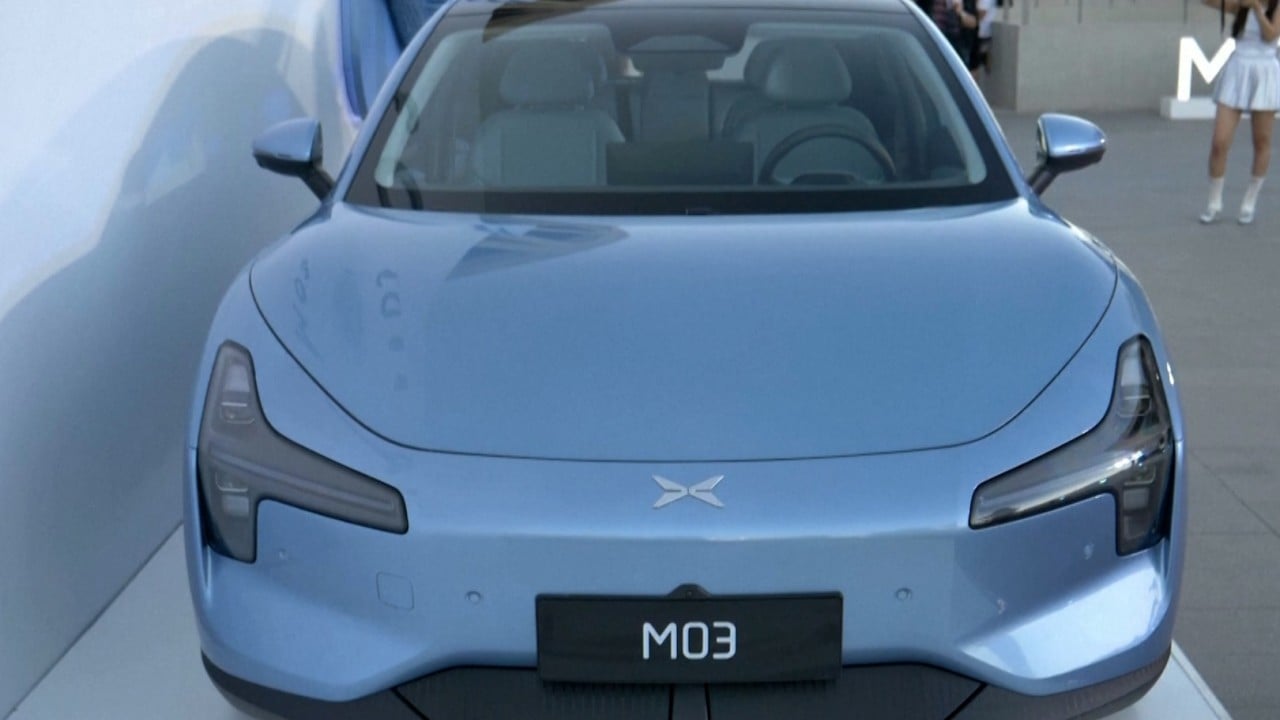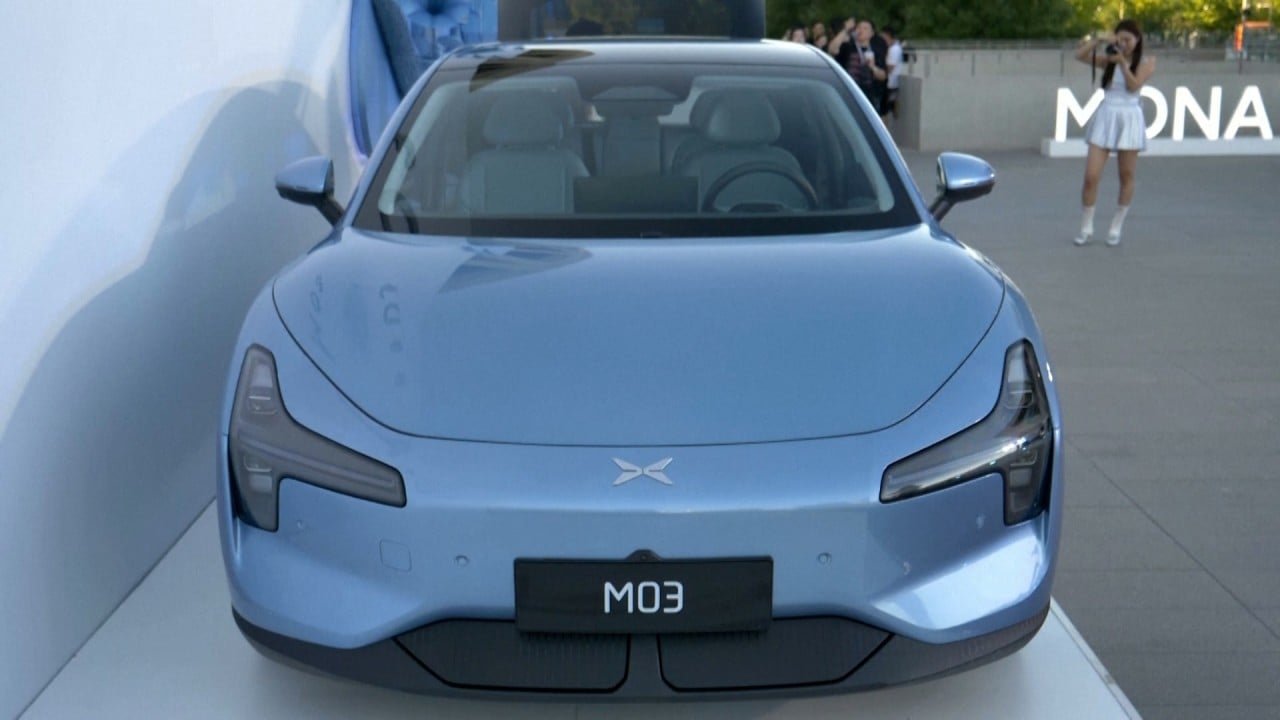Major Chinese electric vehicle (EV) makers reported mixed sales in August despite the lure of generous incentives to boost sales in the world’s biggest car market.
Leapmotor, backed by Stellantis, reported record deliveries, while sales at Li Auto and Nio fell amid escalating competition.
Leapmotor said on Sunday that it handed 30,305 cars to buyers, beating the previous record of 22,093 units by 37.2 per cent. It delivered more than 8,000 units of its midsize SUV, C16, which hit the market in July.
Li Auto, Tesla’s nearest rival on the mainland, however, saw deliveries drop 5.6 per cent month on month to 48,122 units.
“Nearly all EV builders were either reducing prices or conducting promotional activities, such as free charging services, to compete in the cutthroat market,” said Phate Zhang, founder of Shanghai-based electric-car data provider CnEVPost. “The rising EV penetration does not necessarily mean higher sales for every player.”
The mainland’s 50 or so EV assemblers have been embroiled in a discount war since late February amid mounting overcapacity worries in the market. However, the government’s cash subsidies to encourage EV ownership and companies’ massive investment to expand the charging infrastructure have spurred sales for some time now.
Shanghai-based Nio’s deliveries in August fell 1.6 per cent month on month to 20,498 units, but the carmaker achieved monthly sales of 20,000 vehicles for the fourth month in a row.
As Nio begins delivering cars this month under the newly Onvo brand targeting the mass-market EV segment at prices ranging from 200,000 yuan (US$28,196) to 300,000 yuan, sales are set to jump in the coming months, dealers said.
Zeekr, the premium EV builder controlled by Geely Auto, said it delivered 18,015 units last month, 15 per cent higher compared with July.
The company, which currently assembles only pure EVs, said last month that it would design and build hybrid models.
Xpeng supplied 14,036 cars to mainland customers in August, an increase of 26 per cent month on month. Last week, it launched a compact sedan under its new mass-market brand, Mona, aimed at middle and low-income buyers.
Some 878,000 pure electric and plug-in hybrid cars were sold in July, accounting for 51.1 per cent of the country’s total vehicle deliveries, according to the China Passenger Car Association (CPCA). It was for the first time that EVs outsold petrol cars in the world’s largest automobile market.
The country’s EV sales during the first half of 2024 represented 65 per cent of the global total, CPCA data showed.
In April, Goldman Sachs estimated that the profitability of China’s EV industry could turn negative this year if BYD, the world’s largest electric car maker, were to slice another 7 per cent, or 10,300 yuan, off the price of its cars.
To date, only BYD and Li Auto are profitable among China’s home-grown EV builders.
Last week, the two companies posted handsome second-quarter earnings buoyed by surging deliveries despite a bruising price war.
BYD said it earned 9.1 billion yuan for the three months to June 30, nearly doubling from the first quarter and rising 32.8 per cent year on year.
Li Auto said its second-quarter profit jumped by 86.2 per cent from the previous three months to 1.1 billion yuan.



